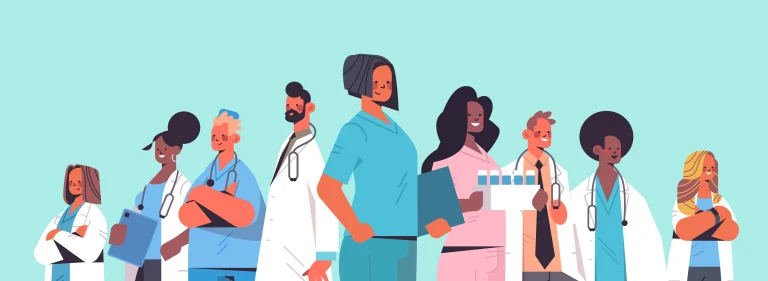Depression is a debilitating mental health disorder characterized by persistent feelings of sadness and hopelessness. It is a serious mental health concern that affects millions…
Depression is a debilitating mental health disorder characterized by persistent feelings of sadness and hopelessness. It is a serious mental health concern that affects millions of people worldwide. You must know that it is not just feeling sad or low. As a matter of fact, experiencing depression can negatively impact your daily life, relationships, and productivity. It can negatively affect the way you feel, behave, and think. Ultimately, depression can also cause you to experience long-term issues, such as social isolation, relationship problems, unemployment, and physical health issues.
The good news is that depression is treatable. Plus, there are various depression treatments available. Knowing about the different types of treatments can help those who are suffering from depression to seek help and start their journey towards recovery. In this article, we will discuss the importance of treating depression and explore the most effective treatments that are available. So, whether you or someone you know is struggling with depression, keep reading to learn more about how treatment can make a difference in your life.
But before exploring the different treatment options for depression, let’s first know more about depression. Don’t miss out on anything, read on below!
How Depression Differs from Sadness and Grief

Even though depression, sadness, and grief are frequently utilized interchangeably, the fact is that they are distinct emotional experiences. What makes depression different is that it is among serious mental disorders requiring professional attention. Meanwhile, sadness and grief are normal responses to life’s challenges and losses. That’s why understanding the differences between them is needed to identify when it is needed to seek professional help.
Sadness is a natural emotion that people experience from time to time. It can be caused by broader life circumstances or specific events, such as the loss of a loved one. This emotion is often accompanied by feelings of low energy, reduced motivation, and reduced pleasure in activities that one typically enjoys. The key difference to remember is that sadness is usually temporary and will eventually pass on its own.
Compared to sadness, grief is a more complex emotion. It naturally occurs after experiencing a loss and can manifest as feelings of disbelief, confusion, anger, guilt, and sadness. Although grief is complex, it is not the same as depression. But if grief is prolonged or becomes unresolved, it can eventually lead to depression.
Finally, depression is a mental health condition characterized by persistent feelings of melancholy, despair, and hopelessness. Unlike normal sadness, depression is not a fleeting emotion. It interferes with daily life, work, and relationships, and it is accompanied by physical symptoms such as low energy, trouble sleeping, poor appetite, and difficulty concentrating. People with depression often lose interest in activities they once enjoyed and struggle to find joy in life.
While grief and depression can coexist, they have different characteristics. Grief is a normal response to loss, while depression is an abnormal state of mind that affects a person’s ability to function. Additionally, individuals suffering from depression do not necessarily have to experience a specific loss or trauma to be depressed, whereas grief always accompanies a loss.
Types of Depression
Depression is not a one-size-fits-all condition. There are different types of depression. Each depression type has its own set of characteristics, symptoms, and causes. In this section, we’ll discuss the main types of depression and their definition, including the DSM-5 classification of depressive disorders and their diagnostic criteria.
Major Depressive Disorder (MDD)
Major depression, also well-known as major depressive disorder (MDD) or clinical depression, is the most common type of depression. In the United States alone, MDD affects around 16 million adults each year. Generally, it can be caused by a chemical imbalance in the brain, environmental factors, or a combination of both.
Major depression is diagnosed when an individual experiences symptoms such as persistent feelings of hopelessness, sadness, or worthlessness, along with other symptoms such as insomnia, fatigue, a depressed mood, and a loss of interest in activities they once enjoyed. These symptoms must continue and persist for at least two weeks, interfering with daily life, to be diagnosed as MDD.
Remember that diagnosis of depression—no matter the type—must be done by a professional as it needs thorough assessment. The symptoms above just served as a little guide to knowing the different types of depression. Thus, it will be easier to get an evaluation.
Persistent Depressive Disorder (PDD)
Persistent depressive disorder, previously termed dysthymia, is a milder form of depression. It typically lasts for at least two years. People with PDD deal with depressive symptoms daily. However, since it is only a mild depression, the symptoms usually don’t interfere with their ability to work or socialize. Symptoms include feelings of hopelessness and low self-esteem, along with changes in sleep patterns and appetite. PDD can be caused by genetics, chronic stress, or environmental factors.
Disruptive Mood Dysregulation Disorder (DMDD)
Disruptive mood dysregulation disorder is previously known as temper dysregulation disorder. What makes it apart from other types of depression is that it mainly affects children and adolescents. Also, it is characterized by severe and frequent outbursts that are disproportionate to the situation. Part of the symptoms also includes a persistently irritable or angry mood. The symptoms must last months for a child to have an MDD diagnosis.
The cause of DMDD is still unclear, but it is considered to involve a combination of genetic and environmental factors.
Seasonal Affective Disorder (SAD)
Seasonal affective disorder is a depression that specifically occurs during the winter months. It happens when there is only limited sunlight. Symptoms include low energy, a lack of motivation, and weight gain because of increased cravings for carbohydrates. The cause of SAD is a lack of sunlight, which disrupts the circadian rhythm and lowers serotonin levels in the brain.
Ultimately, the DSM-5 categorizes the different types of depression into depressive disorders. To receive a diagnosis of a certain depression type, a person must meet specific diagnostic criteria, including experiencing symptoms for a specific length of time. It is a diagnosis criteria used to guide mental health professionals in diagnosing and treating depression.
Causes of Depression

As discussed above, depression is a complex condition with multiple causes, including biological, environmental, and genetic factors. Understanding the various causes of depression is crucial for accurate diagnosis and effective treatment. Here are some of the causes and risk factors of depression:
Imbalance in brain chemistry
An imbalance in brain chemistry is one of the primary causes of depression. The decrease in neurotransmitter levels such as serotonin and dopamine, to say more specifically. These chemicals are crucial in regulating mood, emotions, and behavior. When imbalances occur, it can lead to symptoms of depression.
Moreover, other biochemical factors that can contribute to the onset of depression include changes in hormone levels. For example, some women may experience depression during or after pregnancy due to hormonal fluctuations. Similarly, people with thyroid disorders or other medical conditions that affect hormone levels may also be at an increased risk for depression.
Genetics
Aside from an imbalance in brain chemistry, genetics can also critically contribute to the development of depression. In fact, research reveals that family history can increase a person’s susceptibility to depression, indicating that there may be a genetic component relevant to the condition. For instance, if a person has a first-degree relative (parent, sibling, or child) with depression, their likelihood of developing the condition doubles.
Early childhood trauma
Early childhood trauma is another factor that can contribute to the development of depression. Children who experience abuse, neglect, or other damaging childhood experiences are more at risk of developing mental health issues—including depression—later in life. Exposure to prolonged stress and trauma can alter brain development and contribute to changes in brain structure, leading to a higher susceptibility to depression.
Socioeconomic status
Socioeconomic status can also impact depression risk. People experiencing poverty, social isolation, and chronic stress are more likely to develop depression. Additionally, medical illnesses—such as chronic pain, cancer, and heart disease—can also increase the risk of depression.
Various events or circumstances
In addition to the causes above, various events or circumstances can increase a person’s risk for depression. Substance abuse, chronic pain, and other stressors can trigger or exacerbate depressive symptoms. They make it more challenging to manage the condition effectively. Substance abuse, for example, can disrupt brain chemistry and increase the likelihood of developing depression.
How To Know If you Have Depression
Being aware and understanding the symptoms of depression can help you easily recognize if you or a loved one has depression. This section aims to help you with that by providing the general signs and symptoms of depression.
General signs and symptoms
Depression is a mood disorder that can significantly impact a person’s emotional, cognitive, and physical well-being. Also, depression signs and symptoms can vary depending on the individual’s age, gender, and overall health. Below are some symptoms of depression in adults:
- Feelings of sadness or emptiness
- Restlessness
- Irritability
- Difficulty in concentrating
- Poor decision-making
- Changes in appetite or weight
- Drastic changes in sleeping patterns
- Lack of energy
- Fatigue
- Stomach aches
- Headaches
- Other pains
Moreover, the symptoms of depression in adults may be different in children. Depression in children may show signs of:
- Clinginess
- Social withdrawal
- Lack of energy
- No motivation
- Academic decline
- Stomach aches
- Headaches
- Sleeping issues
- Experiencing nightmares
- Inappropriate behaviors like aggression or tantrums
Overall, the impact of depression on one’s functioning and quality of life can be profound. Depression can interfere with daily activities, social relationships, and work or school performance. Individuals with depression may feel disconnected from their loved ones.
Now that you have seen some of the common causes, risk factors, signs, and symptoms of depression, let’s move on to the main highlight of this guide article—depression treatment.
What to Expect from Depression Treatment
When seeking treatment for depression, it is highly essential to understand that the recovery process can be a long, challenging journey. While there is no single and guaranteed cure for depression, various treatment options can help manage depression symptoms effectively. Here’s what to expect from depression treatment:
Treatment
Treatment for depression may involve different types, such as medication, therapy, or, in severe cases, electroconvulsive therapy. Antidepressants are typically the first medication a doctor may prescribe for depression, and they work by safely altering the balance of chemicals in the brain associated with regulating mood. Psychotherapy, or talk therapy, can help individuals identify and work through negative thoughts and emotions contributing to depression.
Timeframe
Depression treatment may take weeks or months to be effective. There is no pre-determined timeframe to follow. That’s why some depression treatments may last for a longer time. Continuing with the treatment is helpful, even if the effects are not immediately observed. After all, prematurely stopping the treatment may harm, such as causing the depression symptoms to return or exacerbate over time, leading to much more severe depression.
Lifestyle changes
Essentially, making lifestyle changes to complement treatment is a helpful way to manage depression. Regular exercise can boost mood and reduce symptoms of depression, while a healthy diet can promote overall well-being. It’s also essential to avoid substances like alcohol and drugs, which can interfere with medication efficacy and worsen depression symptoms.
Different Depression Treatment Options

Seeking treatments for depression is a crucial step towards recovery. There should not be hesitation regarding seeking professional help because untreated depression can only do harm. While many might think that depression is just feelings, it is a serious condition that needs help. Thankfully, there are several effective methods for treating different types of depression. Know about them below:
Cognitive behavioral therapy (CBT)
Cognitive behavioral therapy, or CBT, is a popularly effective and helpful treatment for depression. This approach combines cognitive therapy with behavioral therapy to help people acknowledge and overcome negative thought patterns and behaviors contributing to depression. The key concept of CBT is the goal of recognizing negative thoughts and beliefs and changing them to improve mood and overall well-being.
What’s more, cognitive behavioral therapy can also help individuals identify destructive patterns of behavior and modify or unlearn them. For example, individuals with depression may have a tendency to withdraw from activities they enjoy, which can lead to further isolation and negative thinking. Simply put, the benefits of CBT are numerous.
Interpersonal Therapy (IPT)
Interpersonal Therapy (IPT) is a psychotherapeutic treatment for depression that focuses on improving interpersonal relationships. It aims to help individuals address problems they may face in their relationships, such as communication difficulties or grief. By improving these relationships, IPT can help individuals overcome their depressive symptoms.
IPT is typically a short-term treatment lasting around 12-16 weeks. During this time, patients work with a trained therapist to identify problematic interpersonal relationships and develop strategies to improve them. This may involve learning new communication skills, understanding and addressing feelings of loss or grief, or identifying and removing toxic relationships from their lives.
Ultimately, studies have shown that IPT can be just as effective in treating depression as other forms of treatment, such as medication or cognitive behavioral therapy (CBT). By improving relationships, individuals can experience greater support and resilience, which can help prevent future episodes of depression.
Mindfulness-based cognitive therapy (MBCT)
Studies have discovered that mindfulness-based cognitive therapy (MBCT) is particularly effective in treating depression, specifically for individuals with recurring depressive episodes. This type of treatment combines aspects of mindfulness and cognitive therapy. Through this treatment, an individual will learn to be present in the moment and observe thoughts and feelings without judgment and address negative thought patterns.
In addition, it was also revealed that MBCT can be effective in decreasing the likelihood of recurring episodes of depression. It is particularly effective for individuals who have experienced multiple episodes of depression, as it can help them recognize the signs of depression and develop skills to manage it more effectively in the future. Still, it is important to know that MCBT is not a substitute treatment. Rather, it is a complementary and promising approach to help individuals better manage their depression.
Psychodynamic psychotherapy
Psychodynamic psychotherapy, also known as psychoanalytic psychotherapy, is a popular method of talk therapy that encourages patients to express themselves freely, leading to the identification of hidden patterns and meanings in their words and behavior that may contribute to their depression. This type of therapy is specifically based on the idea that past experiences, particularly childhood experiences, influence current behavior and emotions.
During psychodynamic psychotherapy sessions, the therapist provides a safe and non-judgmental space for the individual to explore their thoughts and feelings without fear and hesitation. This process can help the patient identify and understand the origins of negative thought patterns and behaviors contributing to depression.
Antidepressants
Even though joining therapies can be effective for some individuals, others may require more intensive treatment, such as medication. That’s why antidepressants are an important part of depression recovery. The effectiveness of antidepressants is observed in effectively altering the levels of some chemicals in the brain linked to depression. Hence, alleviating the symptoms of depression.
Here are some of the types of antidepressants available:
Selective serotonin reuptake inhibitors (SSRIs)
Selective serotonin reuptake inhibitors—or SSRIs, for short—are a well-known type of medication commonly prescribed for depression treatment. Unlike other antidepressants that affect multiple neurotransmitters, SSRIs are selective in their action on serotonin. In particular, they are more focused on improving mood regulation.
While selective serotonin reuptake inhibitors can effectively treat depression, they should be taken with strict guidance from a professional. In fact, they should not be used without proper consultation and monitoring since they are not without side effects, which include:
- headaches
- nausea
- dry mouth
- problems with sexual arousal
- increased risk of self-harm
- suicidal behavior in younger individuals
Because of the possible side effects, medication is typically not the first course of treatment for depression. And if antidepressants are part of the treatment, they are usually combined with cognitive behavioral therapy (CBT) or interpersonal therapy (IPT).
Tricyclic antidepressants (TCAs)
Tricyclic antidepressants (TCAs) are a class of depression medications which primarily work by increasing the levels of two important neurotransmitters in the brain: serotonin and noradrenaline. Hence, they can also regulate mood and emotions.
Similar to selective serotonin reuptake inhibitors, TCAs can also cause side effects. That’s why they should not be combined with other medications—such as monoamine oxidase inhibitors (MAOIs)—because they will only lead to more serious side effects. Alone, TCAs are more likely to cause:
- blurred vision
- constipation
- dry mouth
- dizziness
- weight gain
Ultimately, TCAs may not be right for everyone. Therefore, it should be a requirement to talk to a professional.
Serotonin-norepinephrine reuptake inhibitors (SNRIs)
Unlike selective serotonin reuptake inhibitors and tricyclic antidepressants, serotonin-norepinephrine reuptake inhibitors (SNRIs) are newer antidepressants. Also, SNRIs work a little differently by improving mood, energy, and focus while alleviating anxiety symptoms at the same time. Due to their difference compared to other medications, doctors and their patients have more options for depression.
Strictly, the decision about which antidepressant to prescribe to a person can be complex and requires careful assessment and consideration by a doctor. Factors such as a person’s medical history, current health status, and potential side effects must be taken into account.
Other treatments for depression
While medication and psychotherapy are commonly used treatments for depression, alternative treatments are available for individuals who may not respond well to these traditional approaches. Take note that each individual may have a different response to various depression treatment options, and consulting with a healthcare professional is highly recommended to identify the most effective and safest course of action and treatment for an individual’s specific needs.
Electroconvulsive therapy (ECT)
This treatment involves sending small electric currents through the brain to trigger a brief seizure. It is typically reserved for individuals with severe depression who have not responded to other forms of treatment. While ECT has shown to be effective for some individuals, it can cause short-term memory loss and other side effects including confusion, headache, and nausea.
Repetitive transcranial magnetic stimulation (rTMS)
rTMS is another alternative treatment for depression. This treatment uses magnetic fields to stimulate nerve cells in the brain. It is a non-invasive procedure and does not require any anesthesia. rTMS is generally considered to be safe with minimal side effects, such as headaches and scalp discomfort. It is usually reserved for individuals with moderate to severe depression who have not responded to other treatments.
Vagus nerve stimulation (VNS)
Vagus nerve stimulation is another alternative treatment for depression. It involves implanting a small device in the chest that sends electrical signals to the vagus nerve, a large nerve in the neck. The nerve then sends signals to the brain, which can help alleviate symptoms of depression. While VNS can be effective for some individuals, it does carry potential risks such as hoarseness, coughing, and difficulty swallowing.
Deep brain stimulation (DBS)
Deep brain stimulation is a depression treatment that involves implanting electrodes in specific regions of the brain that regulate mood. The electrodes are connected to a small device implanted under the skin in the chest that sends electrical signals to the brain. DBS is typically considered for individuals with severe depression who have not responded to other treatments. While DBS can be effective, it does carry potential risks such as infection and bleeding in the brain.
Withdrawal Symptoms for Depression
For individuals who have been taking antidepressants as part of their treatment plan for depression, stopping the medication can result in a wide range of symptoms known as withdrawal symptoms. The duration and intensity of these withdrawal symptoms can vary, persisting anywhere from a few days or several weeks.
Common withdrawal symptoms include:
- nausea
- sweating
- dizziness
- headaches
- irritability
- insomnia
- anxiety
- flu-like symptoms
Severe symptoms may also include:
- electric shock sensations
- extreme tingling
If the withdrawal symptoms are not properly addressed, they can increase the risk of relapse. Hence, proper consultation is important to quickly develop a plan to manage withdrawal symptoms better and safer.
Lifestyle Changes for Depression

Depression inevitably affects not only the mind but the entire body as well. Along with medical treatments, lifestyle changes are among the most effective ways to manage depression symptoms. Lifestyle changes refer to small but consistent modifications in daily habits that can positively impact one’s mental health. The three primary lifestyle changes that can significantly improve depression include sleep, exercise, and diet.
Sleep plays a crucial role in regulating emotions and preventing stress. Maintaining a regular sleep schedule is beneficial in managing depression symptoms. It’s essential to ensure that the bedroom is a quiet, cool, and dark place, as good sleep hygiene is essential for achieving restful sleep. Developing a routine of winding down before bed, such as taking a warm bath, can help ease anxiety.
Exercise is a natural antidepressant that can enhance mood, reduce anxiety, and boost self-esteem. Aerobic exercise—like jogging and walking—is especially beneficial for managing depression symptoms. Even small amounts of physical activity can release endorphins, hormones that help improve mood and relieve stress.
Diet can also positively impact mental health. Studies show that consuming caffeine in excess can trigger anxiety and panic attacks. It’s essential to avoid caffeine or limit it to small amounts. Additionally, eating a balanced and nutritious diet can improve your overall well-being. Specific nutrients like omega-3 fatty acids, folic acid, and vitamin B12 are particularly beneficial in managing depression symptoms.
Remember that even the smallest positive lifestyle change, as long as consistent, can result in long-term benefits for maintaining mental health.
Frequently Asked Questions
This FAQ section gives more important information about depression and its treatment, along with other relevant details. Check them out below:
How long does depression treatment last?
Depression treatment typically involves several stages, each with a different duration. The three main phases of depression treatment are acute, continuation, and maintenance. The duration and type of treatment will depend on the severity and type of depression. At the same time, the individual needs and preferences of the patient are also important determining factors of the duration of the depression treatment.
The acute phase of depression treatment
This acute treatment phase generally lasts six to eight weeks and focuses on reducing the symptoms of depression. It comes intending to achieve remission, which means that the patient experiences few or no symptoms of depression.
The continuation phase of depression treatment
This typically lasts four to nine months and aims to prevent a relapse or recurrence of depression. Also, the duration may be extended depending on the risk of recurrence. Continuation treatment may involve ongoing medication, psychotherapy, or a combination of both.
The maintenance phase of depression treatment
This phase may last for years or even a lifetime and is intended to prevent future episodes of depression. Maintenance treatment is recommended for people at high risk of recurring depression.
In addition, the duration of depression treatment also depends on the stage of depression, which can be mild depression, moderate depression, severe depression, and chronic depression. For people with mild depression, psychotherapy or self-help techniques may be sufficient to alleviate symptoms. For those with moderate or severe depression, medication may be necessary in addition to psychotherapy. Chronic depression may require a combination of long-term medication and psychotherapy.
Is depression very treatable?
Fortunately, depression is among the most treatable form of mental disorders, with almost all patients gaining some relief from their symptoms. While the severity and type of depression vary from person to person, there are several effective treatment methods available. That’s why it is essential to be aware of the signs and symptoms of depression. This way, it is possible to seek help early, increasing the chance of a successful and only short time depression treatment.
How does depression affect the brain?
Aside from affecting how a person thinks, behaves, and feels, it can also significantly impact the brain’s chemistry and activity. Studies have shown that depression can cause changes in the brain that affect various areas responsible for mood management, thought management, sleep, appetite, and behavior.
Specifically, depression has been linked to chemical imbalances in the brain. Neurotransmitters, such as serotonin, dopamine, and norepinephrine, play an essential role in regulating mood and emotions. Individuals with depression typically have lower levels of these neurotransmitters, disrupting their ability to manage their emotions effectively.
Moreover, depression also alters brain structure and function. The hippocampus, amygdala, and prefrontal cortex are areas of the brain that regulate mood, memory, and decision-making. Studies have revealed that people with depression have reduced hippocampal volume and activity in the amygdala, which may cause emotional instability and impaired memory formation.
Can you 100% recover from depression?
Even though there is no guarantee for 100% recovery from depression, the chances of success can be improved through a combination of treatment options, lifestyle changes, and relapse prevention strategies. In addition, it is highly essential to partner with a trustworthy mental health professional to develop a personalized treatment plan tailored to the individual’s unique needs. With the right approach to depression treatment, individuals with depression can lead fulfilling and happy lives.
Is depression just a phase?
Thinking that depression is just a phase is a common misconception that many people believe, and it can be a dangerous notion to have. Depression is not a simple phase that one can just snap out of, and it is not a normal part of life. In fact, it has already been stressed that depression is a real mental health disorder affecting millions of individuals and needs serious attention.
Believing that depression is just a phase can prevent individuals from seeking proper treatment. This is because of the wrong assumption that the symptoms will just go away over time or that it is something they can handle on their own. However, this belief can lead to worsening symptoms and potentially life-threatening consequences. Untreated depression can lead to substance abuse, self-harm, or suicide.
Do you lose the feeling of love when you are suffering from depression?
It is typical for individuals suffering from depression to experience a lack of interest in activities and relationships that used to bring them joy. They can be deeply affected during a depressive episode. The experience of being in a depressive episode can cause an individual to feel emotionally numb or empty or in the dark, making it challenging to experience positive emotions such as love. Besides that, depression also manifests in physical symptoms that make everything harder.
Nonetheless, it is essential to note that depression does not necessarily signify the end of love in a relationship. By seeking treatment for depression, one can work to alleviate their symptoms and regain a sense of emotional connection.
Final Thoughts
With everything said above, you must remember that while tackling depression can be a challenging journey, there are ways to recover. Depression comes with difficulties, but it also comes with different treatment methods, lifestyle changes, and social support. One thing is sure, the right depression treatment method is highly helpful to the condition and leads a fulfilling life.
By knowing the different depression treatment methods above, it is easy to think that battling with depression is daunting to be done alone. What you must know is that help is always available. Costa Rica Treatment Center is dedicated to offering the best help to improve life from depression and even addiction. Don’t think that needing professional help is a sign of weakness because asking for one is, in fact, an indication of strength and will to recover.
Hopefully, this article guide has helped you know what you need for depression and its treatment. That way, you can save a life—yours or your loved ones to ultimately improve the quality of life. Get to know more about us, including our services and our dedicated staff. Contact us today.








